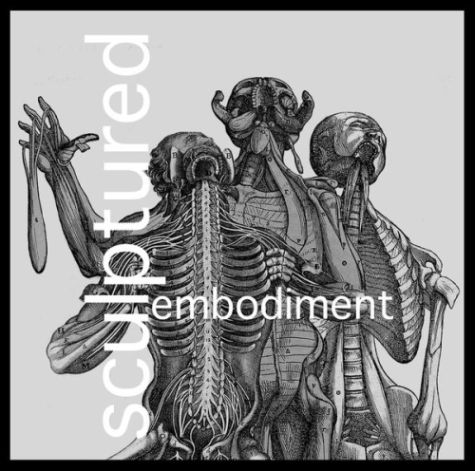
| Date |
Speaker |
Talk Title |
Readings |
| April 4, 2008 |
Rafael Núñez Cognitive Science UC San Diego |
So what is 'embodiment' really? Trends, debates, issues, and how to figure this out | Wilson, M. (2002). Six views of
embodied cognition. Psychonomic
Bulletin & Review 9: 625-636. PDF |
| April 11, 2008 |
Rick Grush Philosophy UC San Diego |
The
role of embodiment in the representation of space, time and objects |
Grush, R. (to appear). Space,
time and
objects. Ed. J. Bickel, The Oxford
Handbook of Philosophy and Neuroscience. Oxford University
Press. PDF |
| April 18, 2008 |
Jerry Feldman Electrical Engineering and Computer Science UC Berkeley |
The
opulence of the substrate: Embodiment explains how children learn
grammar |
Bergen, B. & Feldman, J.
(to appear). It's the body, stupid: Concept learning according to
cognitive
science. Elsevier Handbook of
Embodied Cognitive Science. PDF Chang, N. & Mok, E. (2006). A structured context model for grammar learning. International Joint Conference on Neural Networks. Vancouver, BC. PDF |
| April 25, 2008 |
Stephen Wilson Department of Neurology UC San Francisco |
Neural
evidence for the role of sensorimotor systems in linguistic
representations |
Hauk, O., Johnsrude, I., &
Pulvermuller, F. (2004). Somatotopic representation of action words in
human motor and premotor cortext. Neuron,
41: 301-307. PDF Wilson, S.M., Saygin, A.P., Sereno, M.I., & Iacoboni, M. (2004). Listening to speech activated motor areas involved in speech production. Nature Neuroscience, 7: 701-702. PDF |
| May 2, 2008 |
Marco Iacoboni School of Medicine UCLA |
Mirroring
people: neural mechanisms to connect with others |
Iacoboini, M., Molnar-Szakacs,
I., Gallese, V., Buccino, G., Mazziotta, J.C., & Rizzolatti, G.
(2005). Grasping the intentions of others with one's own mirror neuron
system. Public Library of Science,
Biology, 3:e79. PDF Iacoboni, M. & Dapretto, M. (2006). The mirror neuron system and the consequences of its dysfunction. Nature Neuroscience Reviews, 7:942-951. PDF |
| May 9, 2008 |
Julia Evans Speech, Language and Hearing Sciences SDSU |
Embodied
representations and
cognitive problem solving in specific language impairment |
Zhang, J. & Patel, V.L.
(2006). Distributed cognition, representation, and affordance. Pragmatics & Cognition, 14:2, 333-341. PDF Mainela-Arnold, E., Evans, J.L. & Alibali, M.W. (2006). Understanding conservation delays in children with specific language impairment: Task representations revealed in speech and gesture. Journal of Speech, Language, and Hearing Research, 49: 1267-1279. PDF |
| May 16, 2008 |
John Haviland Anthropology UC San Diego |
Embodied ostension, transposition,
and the cultural superstrate |
Haviland, J.B. (2007). Master
Speakers, Master Gesturers: A string quartet master class. Eds. S.D.
Duncan, E.T. Levy & J. Cassell, Gesture
and the Dynamic Dimension of Language: Essays in honor of David
McNeill, 147-172. Amsterdam/Philadelphia: John Benjamins
Publishing Company. PDF Haviland, J.B. (1993). Anchoring, inconicity, and orientation in Guugu Yimidhirr pointing gestures. Journal of Linguistic Anthropology, 3:1, 3-45. PDF *Other recommended readings at the link to the left |
| May 23, 2008 |
Piotr Winkielman Psychology UC San Diego |
Embodiment
of emotion: Why, how and when |
Winkielman, P., Niedenthal,
P.M., & Oberman, L. (to appear). The embodied emotional mind. Eds.
G.R. Semin & E.R. Smith, Embodied
grounding: Social, cognitive, affective and neuroscientific approaches.
New York: Cambridge University Press. PDF Niedenthal, P.M. (2007). Embodying emotion. Science, 316:1002-1005. PDF |
| May 30, 2008 |
Arthur Glenberg Psychology Arizona State University |
Using
emotion to understand
language |
Havas, D.A., Glenberg, A.M.
& Rinck, M. (2007). Emotion simulation during language
comprehension. Psychonomic Bulletin
& Review, 14:3, 436-441. PDF Glenberg, A.M. & Gallese, V. (in review). Action-based language: A theory of language acquisition, comprehension, and production. PDF *Other recommended resources: Glenberg, A.M., Sato, M. & Cattaneo, L. (2008). Use-induced motor plasticity affects the processing of abstract and concrete language. Current Biology, 18:7, R290-291. PDF Brain Science Podcast #36 at: http://virginiacampbellmd.com/ |
| June 6, 2008 |
Ed Hutchins Cognitive Science UC San Diego |
The
consequences of taking embodiment seriously |
Alac, M. & Hutchins, E.
(2004). I see what you are saying: Action as cognition in fMRI brain
mapping practice. Journal of
Cognition and Culture, 4, 629-661. PDF Hutchins, E. (2008). The role of cultural practices in the emergence of modern human intelligence. Philosophical Transactions of the Royal Society B: Biological Sciences, 363, 2011-2019. PDF Hutchins, E. (in press). Enaction, imagination and insight. PDF |